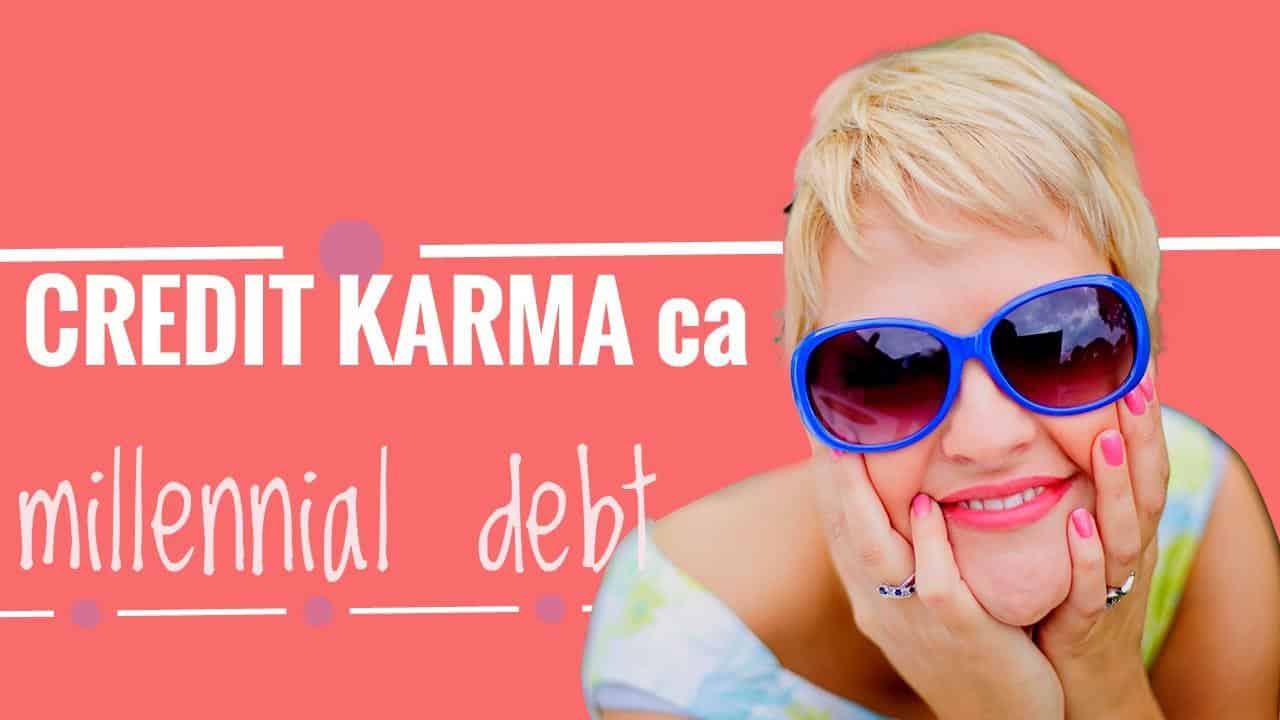If you would rather listen to an audio version of this Credit Karma ca Brandon’s Blog, please scroll down and click on the podcast
Introduction
A brand-new Credit Karma ca report on millennial debt is out. Credit Karma Canada reports that its US company has performed a research survey of 1,041 millennial customers in the United States. As far as I can tell, they did not do a similar Canadian survey. However, I highly doubt that a Canadian millennials debt study would produce results drastically different than this survey.
The results reveal that virtually fifty percent (48%) of millennials have spent money they really did not actually have by going into debt. Why? To keep up with their pals.
Unfortunately, this is a significant increase from the findings of the 2018 survey (up from 39% of participants evaluated in 2018).
The nature of the millennial debt
Whether it’s on food or beverages, concerts or tattoos, they discovered that more and more millennials are spending beyond their means as a result of increasing public opinions. Greater than 2 in 5 millennials (44%) from the study stated they’re terrified to miss out on unique or once in-.a-lifetime experiences. Over one-third (36%) don’t want to look like an outsider.
Despite the fact that according to Credit Karma ca, almost 1 in 2 millennials have actually experienced fear of missing out (FOMO) driven debt, they’re mostly being silent about it. Of the participants that have actually entered into debt just to keep up with their mates, 80% claimed they would certainly keep the fact that they have gone into debt quiet and not tell friends or family.
Why do they wish to keep it secret? The survey shows that their reasons are ones of regret, guilt and embarrassment. They do not feel good about the debt they have incurred.
In 2014 their survey showed that millennials were most likely to use the money they really did not have for unique experiences, such as events, nightlife or holidays with their buddies. The new survey also looked at what experiences and purchases were triggering millennials to acquire FOMO debt.
According to their study this year, the #1 point driving millennials to spend beyond your means is food ( 47%), and then clothing (41%). As well as there are some millennials that have entered into FOMO fueled debt on much bigger and long-term items. Cars and trucks (15%), tattoos (11%) and real estate (9%). So out of all the millennials that go into debt, only 9% of millennials go into debt in order to acquire an asset that will grow in value over time, millennial home ownership. Another way of looking at it, 91% of millennials go into debt either for an experience that once it is over, it is over or for a tattoo!
Regardless of the product or experience, social networks play a huge component in driving the millennials’ need to spend beyond their means. The survey results show that 2 in 5 participants (40%) claimed they spent money on something a minimum of one time per year simply to publish that fact on social media sites.
Why do millennials really feel forced to spend too much?
According to the survey, the main reasons that millennials really feel pressured to go into debt to keep up with their close friends are:
- A concern of losing out on a unique or unbelievable experience 44%
- Worry of not being included in future outings 41%
- The concern of being treated like an outsider 36%
- Worry of being evaluated 25%
- Concern over losing close friends 24%
As you can see, 4 out of the top 5 responses has to do with what their friends may think. This makes sense. The majority of the things millennials go into debt for, such as vacations, concerts and restaurants, are things that you do with friends.
So what is the answer?
Obviously, no one can keep going into debt on an unlimited basis, especially when the reason is to keep up with others. I have some tips on how to deal with friends that either has more money than you or are willing to go deeper into debt than you. Or, at least are not concerned about their debt like you are.
Hang out together in ways that don’t force you to spend
Consider how you can invest in quality time but not your cash. Time spent with close friends and loved ones is an experience that can be valued over something that pushes you into debt. Those good times also last forever.
There is no need to be embarrassed about being not able to pay for an evening out or a costly getaway. As I pointed out previously, 80% of millennials that spend beyond their means hide it from others. However, by being straightforward with your buddies, you may be amazed to discover they really feel similar to you.
Speak to your pals concerning your worries and also do cost-free or much more modest cost things that let you hang out with each other.
Control your funds, do not allow it to control you
Eighty-one percent of participants stated they have a month-to-month budget that they attempt to stick to, which is wonderful. Nonetheless, the millenials that have such a plan seem to have a hard time keeping within it once they feel the peer pressure being applied.
If you’re amongst those that have a problem with budgeting, it can be handy to be a lot more conscious about the consequences of buying something. Take into consideration whether you can really afford it and if you didn’t buy it, will it really hurt your life. If not, then reevaluate, don’t buy it and build up some savings.
Another tip is to lock your debit and credit cards away and spend only cash. By using real cash and not plastic (or a debit card) you get a better sense of what you are spending on extras and how much you need to still have for essentials until the next paycheque. When cash is gone, it is gone. This behaviour will force you to think about how much money you need for essentials for the number of days until the next payday – which is a good thing.
Will this item or experience be important in 5 years?
In some cases, the answer is no, and sometimes it is yes. If the answer is yes, then slot it into your budget and see if you can afford it. Make sure your budget also has a line for savings. That way you will be building up a fund for investing. This fund can also be called upon in the event of a real emergency that could not have been planned for. Examples are increased health costs or reduced income through job loss.
It is essential to have an emergency fund that you can tap into in the event of a real crisis. It isn’t so bad to also have further savings and investments. It is never too early to start planning for retirement. If you wait until you are closer to retirement than the start of your career, you will never be able to catch up.
Conclusion
I hope you found the Credit Karma ca study as informative as I did. Of course, budgeting and debt issues are not limited to only millennials. Financial problems can affect anyone. Whenever I sit down with a person to talk about his or her insolvency, or with an owner of a company to discuss business financial problems, I make sure that we have an entire discussion. I not only talk to them about what process I recommend for their unique situation, but I also walk them through the entire process and what all the rights and responsibilities are.
Are you or your business experiencing money troubles? Are you on the verge of bankruptcy? Do not wait till it is far too late to understand how you can restructure your financial affairs and avoid bankruptcy. You do not need to be one more person or company declaring bankruptcy in Canada.
As a licensed insolvency trustee (formerly called a bankruptcy trustee), we are the only specialists certified, accredited and overseen by the federal government to provide insolvency guidance and to apply remedies under the BIA. We will certainly help you to choose what is best for you to release you from your debt problems.
Call the Ira Smith Team today so we can get rid you of the stress, anxiety, pain and discomfort that your money issues have created. With the distinct roadmap, we establish simply for you, we will without delay return you right into a healthy and balanced problem-free life, Starting Over Staring Now. Call the Ira Smith Team today.
[monkeytools msnip=”https://monkeyplayr.com/playr.php?u=5173&p=21153″]


